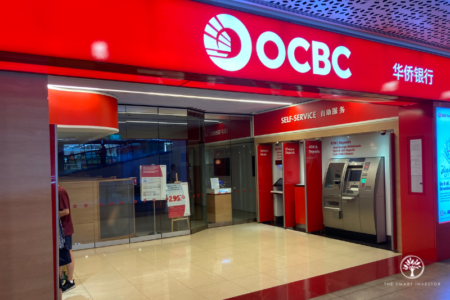If you are looking for stocks to invest in, take a look at broader growth trends that can last for years.
Some trends, such as e-commerce and online payments, can persist and last for years, providing tailwinds to a wide range of companies and industries.
Other trends may turn out to be short-term fads, fizzling out quickly after attracting a temporary following.
Food and beverage fads are often short-lived and do not have lasting power as people’s taste buds are fickle.
Keeping track of trends is useful to help investors understand human behaviour and how it impacts businesses.
From these insights, you can then sift out promising companies to invest in.
Here are three booming new trends that have surfaced recently.
Special purpose acquisition companies (SPACs)
SPACs are also known as blank-cheque companies and have been gaining huge popularity as a method for private companies to go public.
In a nutshell, SPACs exist as listed “shell” entities with no core business, akin to being a pure investment company.
Their sole purpose is to merge with a private business, providing a pathway for the business to get listed.
The advantages of SPACs over a traditional IPO are plenty.
SPACs are promoted by a sponsor, which makes it easier for companies to negotiate with for pricing, rather than in a traditional IPO process.
The listing process for a SPAC is also less onerous, allowing the business to quickly come to market to capture growth opportunities.
Singapore Exchange Limited (SGX: S68) is looking at SPACs as an option to revive interest in the local stock market and could start listing them as early as this year if the idea garners sufficient support.
SPACs have already raised a record US$78 billion in the US last year.
Even WeWork, the coworking start-up that failed to list in a traditional IPO last year, is mulling a US$9 billion merger with blank-cheque company BowX Acquisition to go public.
However, more regulations need to be in place to protect investors before SPACs can be launched.
Because of the less rigorous process in which these companies come to market, they may end up being significantly riskier than companies that choose to list via the traditional route.
Buy now, pay later (BNPL)
Hands up if you have ever taken up an interest-free instalment plan for a large purchase.
I can bet that some of you have taken this option before, or considered it.
Not only is it fuss-free, but there is no cost involved and it helps to smoothen your cash flows as compared to a lump-sum payment.
Enter BNPL, where customers can break up a large purchase into smaller amounts to be paid over a few months, all interest-free.
US company Paypal (NASDAQ: PYPL) and Australian company Afterpay (ASX: APT) are pushing out BNPL aggressively to enlarge their user base and capture more business.
BNPL is effectively a form of short-term borrowing and targets mainly younger shoppers that may not be able to afford to pay larger amounts.
As young shoppers are usually armed with lower levels of financial literacy, several authorities in Singapore are asking for the BNPL industry to be regulated.
Although BNPL is leading to a boom in consumer spending, questions arise as to whether default rates may rise as it tends to encourage impulse spending.
In the UK, more than 10% of customers of a major bank using BNPL are in arrears, while around 20% of customers in Australia has missed BNPL payment instalments.
While BNPL may end up being an enduring trend, more needs to be done to regulate this area to ensure its sustainability moving forward.
On-demand entertainment options
The pandemic had temporarily shuttered cinemas and cafes – outdoor venues where people usually congregate to enjoy a movie or soccer match.
Because of this, more people have been exploring streaming, on-demand services that provide a wide range of movies and TV shows.
Netflix (NASDAQ: NFLX) is a pioneer in the provision of on-demand entertainment with more than 200 million subscribers at the end of 2020.
Other companies are also jumping into the fray, with the iPhone giant Apple (NASDAQ: AAPL) launching its Apple TV+ in November 2019.
The CEO of Disney (NYSE: DIS), Bob Chapek, believes that movie-going has “changed fundamentally” and is highly unlikely to “return to previous patterns”.
The company, famous for its theme parks, launched its on-demand streaming platform Disney+ in November 2019 too and offered exclusive content from its vast library of old movies and cartoons.
The service was recently launched in Singapore just two months ago in February.
With the rash of new entrants into the on-demand entertainment sector, it looks like movie theatres may soon become a thing of the past.
Get Smart: Latching on to the right trends
The three trends above may define consumer behaviour and the variety of investment options you have in the months or years to come.
As a Smart Investor, you need to carefully assess which trends are worth latching on to.
If chosen correctly, you can enjoy healthy returns on your investment portfolio over the long-term.
A secure, worry-free retirement may not be as far-fetched as you may believe. In our latest special FREE report, we cover eight stocks, consisting of a mix of blue-chips and mid-cap companies, that we believe can ride the recovery and offer investors a great mix of both growth and income. Click HERE to download the report, 8 Singapore Stocks for Your Retirement Portfolio, for FREE now!
Follow us on Facebook and Telegram for the latest investing news and analyses!
Disclaimer: Royston Yang owns shares of Apple and Singapore Exchange Limited.




